Current News
/ArcaMax

Mexican Supreme Court remake: Ruling-party loyalists dominate the new bench
MEXICO CITY — Judicial candidates closely linked to Mexico’s ruling party have swept every position on the nation’s newly transformed Supreme Court, according to final results released Wednesday from the controversial judicial vote.
The nine incoming justices on the high court have strong ties to the dominant Morena bloc headed by ...Read more
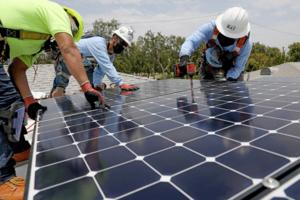
California broke law in cutting rooftop solar incentives, state Supreme Court is told
The California Public Utilities Commission failed to abide by state law when it slashed financial incentives for residential rooftop solar panels in 2022, environmental groups argued before the California Supreme Court on Wednesday.
The commission’s policy, which took effect in April 2023, cut the value of the credits that panel owners ...Read more

Trump escalates battle with Columbia University, threatens accreditation
NEW YORK — The Trump administration has launched a process to try and strip Columbia University of its accreditation over a finding the school had failed to meaningfully protect Jewish students from harassment.
On Wednesday, the U.S. Education Department notified the Middle States Commission on Higher Education, Columbia’s accreditor, that ...Read more

Federal judge blocks immediate deportation of Boulder attack suspect's family
DENVER — A federal judge in Denver issued an order Wednesday to prevent the deportation of the wife and five children of the Egyptian man suspected in the firebombing attack on demonstrators in Boulder who were calling for the release of Israeli hostages.
U.S. District Judge Gordon P. Gallagher granted a request from the family of Mohammed ...Read more
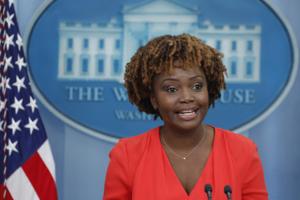
Former White House press secretary Karine Jean-Pierre leaves Democratic Party, claims 'betrayal' in new book
Former White House press secretary Karine Jean-Pierre is leaving the Democratic Party and promoting a new book expected to offer insight into her time serving under President Joe Biden.
“Independent,” Jean-Pierre’s upcoming tome, vows to deliver a hard-hitting analysis of “America’s broken two-party system,” while urging readers to ...Read more
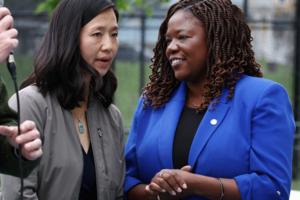
Boston City Council passes Michelle Wu's $4.8 billion budget, with $1.1 million in amendments
BOSTON — In a marked change in tone from the infighting that occurred last year, the Boston City Council unanimously approved the mayor’s proposed $4.8 billion city budget for fiscal year 2026 with $1.1 million worth of Council amendments.
Council Vice President Brian Worrell, who shepherded the Council’s budget process as chair of the ...Read more
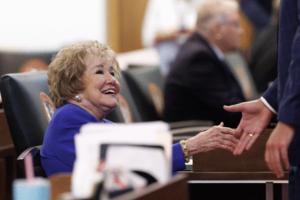
Lawmakers honor 'living legend' Elizabeth Dole, first female US senator from North Carolina
RALEIGH, N.C. — Elizabeth Dole, North Carolina’s first woman U.S. senator, was honored by the North Carolina General Assembly on Wednesday during special ceremonies, and will soon have a portion of Interstate 85 named for her.
Dole, 88, is a Republican from Salisbury and has received several accolades for her lengthy career in public ...Read more

Federal judge blocks immediate deportation of Boulder attack suspect's family
DENVER — A federal judge issued an order Wednesday to prevent the deportation of the wife and five children of an Egyptian man charged in the weekend firebombing attack in Boulder.
U.S. District Judge Gordon P. Gallagher granted a request from the family of Mohammed Sabry Soliman, 45, to halt deportation proceedings of his wife and children ...Read more
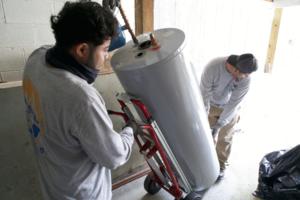
Regulators seek to phase out gas-powered appliances in Southern California
LOS ANGELES — Southern California’s air quality regulators are set to vote this week on new rules aimed at phasing out the sale of gas-powered furnaces and water heaters in the region.
The South Coast Air Quality Management District, or AQMD, which covers all of Orange County and large swaths of Los Angeles, Riverside and San Bernardino ...Read more

Palm Springs accomplice fled to Europe after supplying ingredient for bomb, feds say
LOS ANGELES — A man from Washington state is facing terrorism charges in connection with last month’s attack on a fertility clinic in Palm Springs, federal authorities announced Wednesday.
Daniel Park, 32, has been charged with providing and attempting to provide material support to a terrorist, said Bill Essayli, the top federal prosecutor...Read more
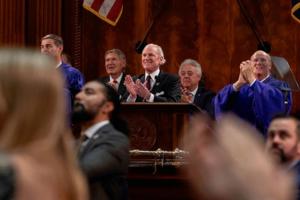
From regulating robots to expunging South Carolina gun charges: Gov. Henry McMaster's 2025 vetoes
COLUMBIA, S.C. — Gov. Henry McMaster has vetoed three bills in 2025 and some notable line items from next year’s state budget following the conclusion of the South Carolina Legislature’s latest session.
He tied two of his vetoes to refusing to sign legislation that applies only to one small area of the state, denying state lawmakers’ ...Read more

NASA Langley workforce slashed by 40% in Trump budget plan
NASA Langley Research Center in Hampton, Virginia, will lose funding for several projects and cut its workforce by 672 civil servants under the Trump administration’s proposal to slash about $163 billion in federal spending next fiscal year.
The White House budget proposal is a starting point, and ultimately Congress must approve it. But the ...Read more

Friend of Cassie Ventura testifies Sean 'Diddy' Combs held her over 17th-story balcony
NEW YORK — A friend of Casandra “Cassie” Ventura testified in Manhattan federal court Wednesday, alleging she was held over the edge of a Los Angeles high-rise by an unhinged Sean "Diddy" Combs.
Bryana Bongolan, 33, a creative and marketing director, said the disturbing incident occurred in September 2016. She said she and a girlfriend ...Read more
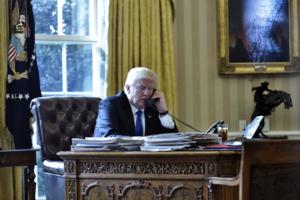
Trump broadcasts Putin vow to respond to Ukraine drone strike
WASHINGTON — Donald Trump on Wednesday broadcast Vladimir Putin’s warning that he’ll retaliate against Ukraine for its recent stunning drone strikes deep inside Russian territory, the clearest signal yet that the U.S. president’s peace efforts have stalled.
Posting on his Truth Social platform after he said the two spoke by phone, Trump...Read more

Trump to visit Fort Bragg in NC next week
WASHINGTON — President Donald Trump plans to visit Fort Bragg next week in his second official trip to North Carolina since his reelection.
A source with direct knowledge who was unauthorized to speak publicly confirmed Trump’s trip, saying it’s planned for Tuesday.
Further details were not immediately available. White House officials ...Read more
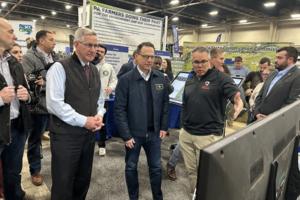
Pennsylvania Gov. Josh Shapiro sues Trump administration in dispute over money for farm and food bank program
HARRISBURG, Pa. — Gov. Josh Shapiro on Wednesday said he filed a federal lawsuit against the Trump administration in an attempt to get money he said Pennsylvania is owed for a federally funded program that buys food from local farmers to distribute to food banks.
Shapiro announced the filing of the lawsuit during an appearance in Philadelphia...Read more
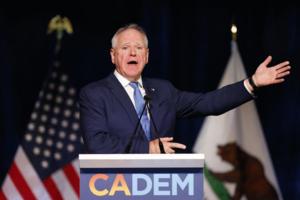
Minnesota Gov. Tim Walz backs transgender kids in sports as Democrats grapple with debate over bans
WASHINGTON — Months after California Gov. Gavin Newsom told a conservative podcast it’s “deeply unfair” for transgender athletes to compete in women and girls sports, Minnesota Gov. Tim Walz took the stage at the Democratic Party’s annual state convention in Newsom’s home state to let his party know he disagrees.
“I’m just going...Read more

Smoke from Canadian wildfires brings air quality alert, hazy conditions to NYC
NEW YORK — An air quality alert was issued for New York City, as well as parts of New York State, New Jersey and Connecticut on Wednesday in response to southern-drifting, hazy smoke from Canadian wildfires and rising ozone levels.
The smoke is coming from fires in the central Canadian provinces of Manitoba and Saskatchewan.
The National ...Read more
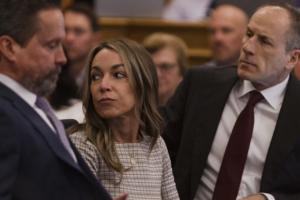
Snowplow driver testifies in Karen Read case that he saw no body on yard
DEDHAM, Mass. — A snowplow driver in the Karen Read retrial testified he didn’t see a body outside 34 Fairview Road — but a prosecutor suggested a blogger may have “pressured” him into saying so.
Canton public works snowplow driver Brian “Lucky” Loughran said that he began his overnight plow shift at 2:15 the morning John O’...Read more

UN: Haiti faces record hunger, food stocks are dwindling and warehouses sit empty
Haiti, torn by violence and rampaging gangs, is one of five countries in the world facing catastrophic levels of hunger, with nearly half the population going without food, the regional director of the United Nations food agency said Tuesday.
The World Food Program’s supplies in Haiti are “dwindling and disappearing,” said Lola Castro, ...Read more
Popular Stories
- California freshwater fish found to be teeming with parasites. How to keep from getting sick
- Whatever happened to President Trump's plan to inspect the gold at Fort Knox?
- Whitmer spoke with Trump about pardons for kidnap conspirators
- Trump says Putin on call vowed retaliation for drone strike
- He claimed to be Trump's 'assassin,' officials say. Southern California man pleads not guilty to threats





